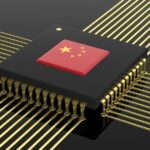Chinese engineers are reportedly gaining access to NVIDIA’s advanced AI chips through decentralized rentals, bypassing US export bans and stoking rising tensions between China and the United States. These chips, crucial for artificial intelligence development, are supposedly being accessed via unregulated online platforms, allowing Chinese engineers to continue innovating despite US sanctions.
Please follow us on Facebook and Twitter.
Accessing Banned NVIDIA AI Chips
According to The Wall Street Journal, Chinese engineers are using decentralized platforms to rent servers equipped with NVIDIA’s high-powered AI chips, including the A100 and H100, which are critical for advanced AI applications. These chips are subject to strict US export controls, aimed at limiting China’s access to cutting-edge AI technology.
While these controls prohibit direct sales to China, the decentralized rentals allow Chinese engineers to remotely access the chips through cloud services hosted outside of mainland China, circumventing the legal restrictions. This practice has raised alarms in the US, with concerns about how these chips could be used to bolster China’s AI capabilities in critical sectors such as military technology.
China’s Continued AI Progress Despite U.S. Chip Bans

The decentralized access to these banned AI chips enables China to continue advancing its artificial intelligence programs, despite the US government’s efforts to restrict their technological growth. These chips provide the computational power needed for complex AI tasks, including machine learning and large-scale data processing.
The implications of this activity are significant. Not only does it undermine US export bans, but it also accelerates China’s AI development. US officials are concerned that this could lead to advancements in AI-powered military technologies, further intensifying the tech rivalry between the two nations.
NVIDIA’s Response
NVIDIA, a leading developer of AI chips, has found itself in the middle of this controversy. The company is fully aware of the US government’s export restrictions on China, and as such, has complied with the regulations. However, the rise of decentralized rental platforms that offer access to NVIDIA’s technology without direct sales to China presents a legal gray area.

NVIDIA has yet to release an official statement addressing these decentralized rentals, but the company continues to cooperate with US authorities to ensure compliance with export regulations. It remains unclear how NVIDIA can control the use of its chips once they have been sold to overseas cloud providers that are not bound by the same restrictions.
US Faces New Challenge as China Bypasses AI Chip Restrictions
The US-China tech war has escalated in recent years, with AI chips at the heart of the conflict. The US government sees China’s AI development as a threat to national security, leading to strict export controls on advanced chips like those from NVIDIA. The goal is to stifle China’s progress in AI, a field that could give them a competitive advantage on the global stage.
These decentralized rentals present a new challenge for US policymakers, who are now seeking ways to prevent Chinese engineers from bypassing sanctions through indirect means. As the situation unfolds, it may lead to tighter regulations on cloud service providers and rental platforms to close these loopholes.
US to Tighten AI Hardware Rules to Block China’s Access
The US government is expected to respond to this development by tightening regulations on the sale and rental of AI hardware. Lawmakers are pushing for more stringent controls on cloud computing services and decentralized rental platforms, making it harder for Chinese engineers to access the technology through third-party vendors.
The Biden administration has signaled its commitment to maintaining strict controls on AI chip exports, but this recent revelation indicates that further actions may be needed to prevent China from gaining access through alternative channels.








